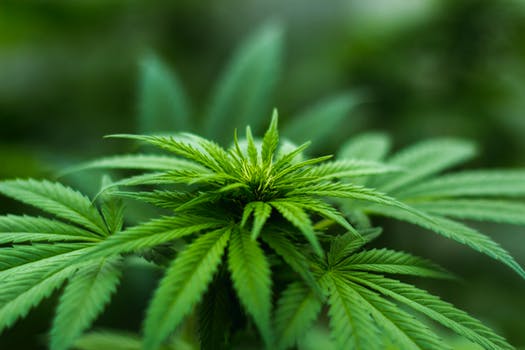How Long Does a Weed High Last?
What Is Weed?
Weed is the street name for cannabis commonly known as marijuana, a psychoactive drug whose main active ingredient is tetrahydrocannabinol (THC). Weed can be used by smoking, vaporizing, within food, or as an extract. The use of weed for its mental and physical effects, such as a “high” or “stoned” feeling dates back to several centuries ago. The introduction of weed into the human body following recreational, medicinal, religious or spiritual purposes. is accompanied by a general change in perception, euphoria (heightened mood), and an increase in appetite. The duration of a weed high vary by individual but depends significantly on mode of administration, specific strain of marijuana used, amount of weed consumed and tolerance of user. Other factors which affect the psychoactive effects of marijuana include; age, height, weight, and general health of marijuana user, the amount of THC found in the weed, the concurrent use of marijuana with other drugs, the person’s level of tolerance to marijuana & THC and previous experiences with or exposure to marijuana. The legality of weed varies from country to country. Possession of weed is illegal in most countries and has been since the beginning of widespread cannabis prohibition in the late 1930s.
In the United States, the use and possession of weed is illegal under federal law for any purpose, by way of the Controlled Substances Act of 1970. However The medical use of weed is legal (with a doctor’s recommendation) in 29 states, the District of Columbia, and the territories of Guam and Puerto Rico. Seventeen other states have laws that limit THC content.
How Does Marijuana Work
When weed enters the body’s bloodstream after smoking marijuana or ingested, it orally it exerts its effect when tetrahydrocannabinol the ingredient binds to cannabinoid receptors in the central nervous system and interferes with important neurotransmitter systems involved in physiological, psychomotor and cognitive effects. Weed affects the central nervous system and has the ability to cause anxiety attacks, paranoia, hallucinations, memory loss and others.
How Long Does Weed last in Your System ?
Smoked weed rapidly enters the blood stream as compared to when it is ingested orally which takes between 20 minutes to 1.5 hours. Once in the bloodstream, tetrahydrocannabinol or THC is rapidly metabolized into over 80 different metabolites. The majority of THC is excreted by the feces (65%) and over 30% leaves the body via the urine, although a very small amount of unchanged THC leaves the system intact. In urine, THC is noticeable up to 3 days after the last dose of marijuana or weed. However, chronic use can be detected weeks or months after last use. And as with any other drug, the hair follicle drug test detection time for marijuana is a minimum of 90 days in a single human hair.
How Long Do Weed Effects Last?
Effects of smoking weed are noticeable within minutes, and usually reach peak levels after 30 minutes. Most physical and psychological effects of marijuana will return to normal within 5 hours after administration, with exceptional strains or high potency THC effects reported to last for 24 hours.
How long does a Marijuana High Last
The duration of a weed high is highly dependent on two factors namely;
Chronic (medicinal or recreational) use
Concurrent use of marijuana with other drugs
In general, weed highs usually last for about 2 to 3 hours. A typical high from smoking or vaporizing weed lasts for about 2 hours. Users tend to peak at around the 30-minute period. Once weed is orally ingested, its active ingredient THC is converted to 11-hydroxy-THC via a chemical reaction in the liver. This change is why the high feels rather different from smoking. It is a lot more psychoactive and trigger a weed high that lasts for longer: about 4-6 hours. However, psychomotor impairment can remain after the initial high effects have worn off. Most common among these after effects are irregular time tracking, hand and eye coordination, or memory gaps. SEE Adderall and Weed Mix : Facts and Fictions
Marijuana High Effects
A wide range of effects may occur during a marijuana high, which vary in their intensity and quality. Among the most common and easily noticeable effect of marijuana high is the intensification of sensation and increased clarity of perception. Visual perception can change, colors seem to be brighter, patterns and graphic design are easily recognizable. Among other possible effects of a marijuana high are:
- appetite stimulation
- changes in perception of pain
- changes in perception of time
- enhanced sense of taste and smell
- increased fidelity and dimension of music
- intensified sense of hearing
- more sensitivity to heat, cold, and pressure receptors
- objects appear more visually distinct
Side Effects of Weed On Human Health
There are several health implications of weed high, many of which are immediate and significantly undermine your health and well-being. A person’s heart rate speeds up within a few minutes after inhaling cannabis smoke, the breathing passages relax and become enlarged, and blood vessels in the eyes expand, making the eyes look bloodshot. The heart rate—normally 70 to 80 beats per minute—may increase by 20 to 50 beats per minute or may even double in some cases. Taking other drugs with marijuana can amplify this effect. The following are the other health effects of weed on the human body :
Effect of Weed on the Respiratory System
According to the National Institute of Drug Abuse (NIDA),Marijuana or weed smoke contains carcinogens( Cancer causing agents) so it may increase your risk of lung cancer. In addition, like tobacco smoke, marijuana or weed smoke is made up of a variety of toxic chemicals, including ammonia and hydrogen cyanide, which can irritate your bronchial passages and lungs. If you’re a regular smoker, you’re more likely to wheeze, cough, and produce phlegm. You’re also at an increased risk of bronchitis and lung infections. Weed may aggravate existing respiratory illnesses, such as cystic fibrosis and asthma.
Effect of Weed On the Nervous System
The effects of weed extend throughout the central nervous system (CNS). Cannabis is thought to ease pain and inflammation and help control spasms and seizures. Still, there are several long-term negative effects of weed on the CNS. Very large doses of weed or high concentrations of THC can cause hallucinations or delusions and some mental health disorders like depression, anxiety, and the exacerbation of symptoms of schizophrenia. Around 30 percent of marijuana users develop a marijuana use disorder and symptoms of weed withdrawal which may include irritability, insomnia, and loss of appetite. Using marijuana during pregnancy can affect the brain of your unborn baby. Your child may have trouble with memory, concentration, and problem-solving skills. SEE: How Long Does Ecstacy High Last
CLICK HERE TO DOWNLOAD How to Overcome Addiction PDF
Public Health Nigeria an Interdisciplinary public health movement focused on health education, advancing fair public health policies, promoting fitness, healthy diets, responsible behavior, community health and general well-being.







